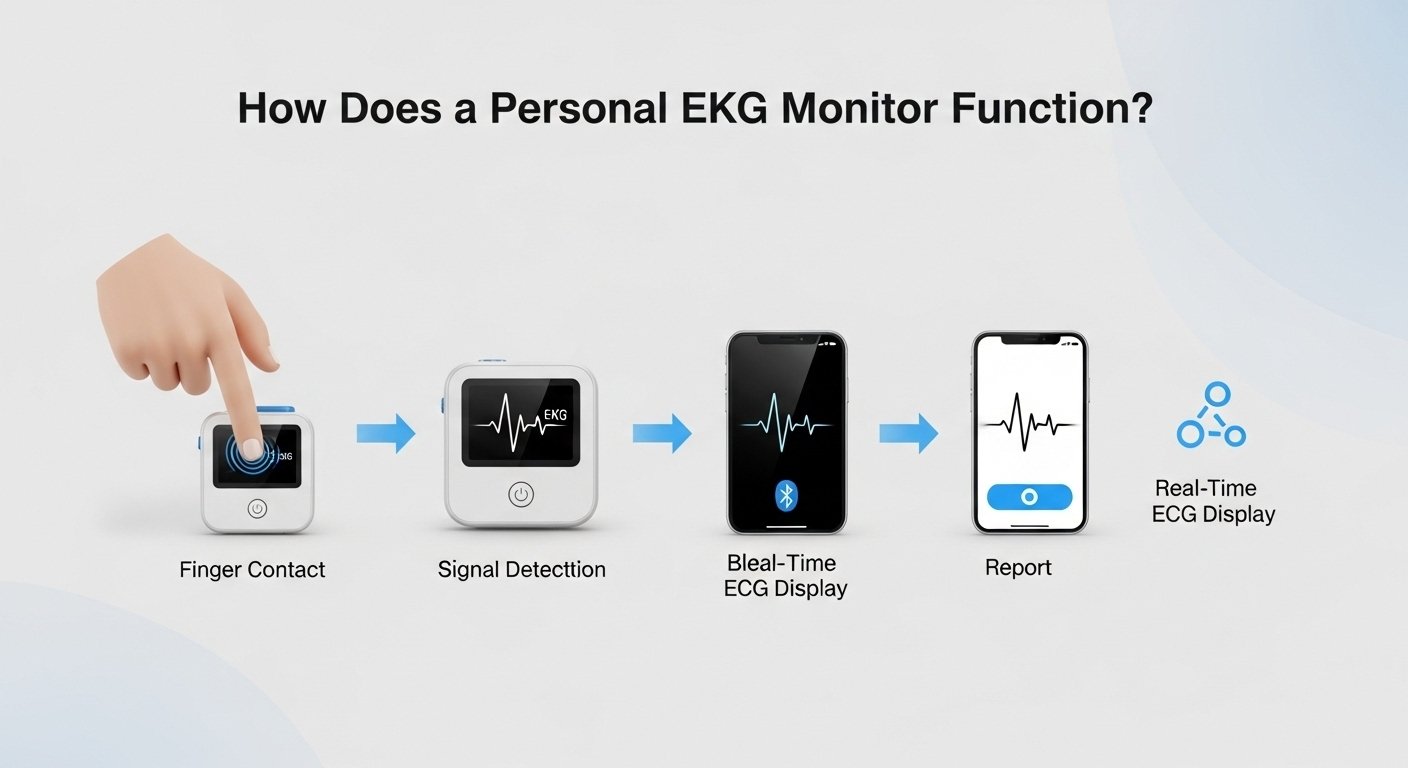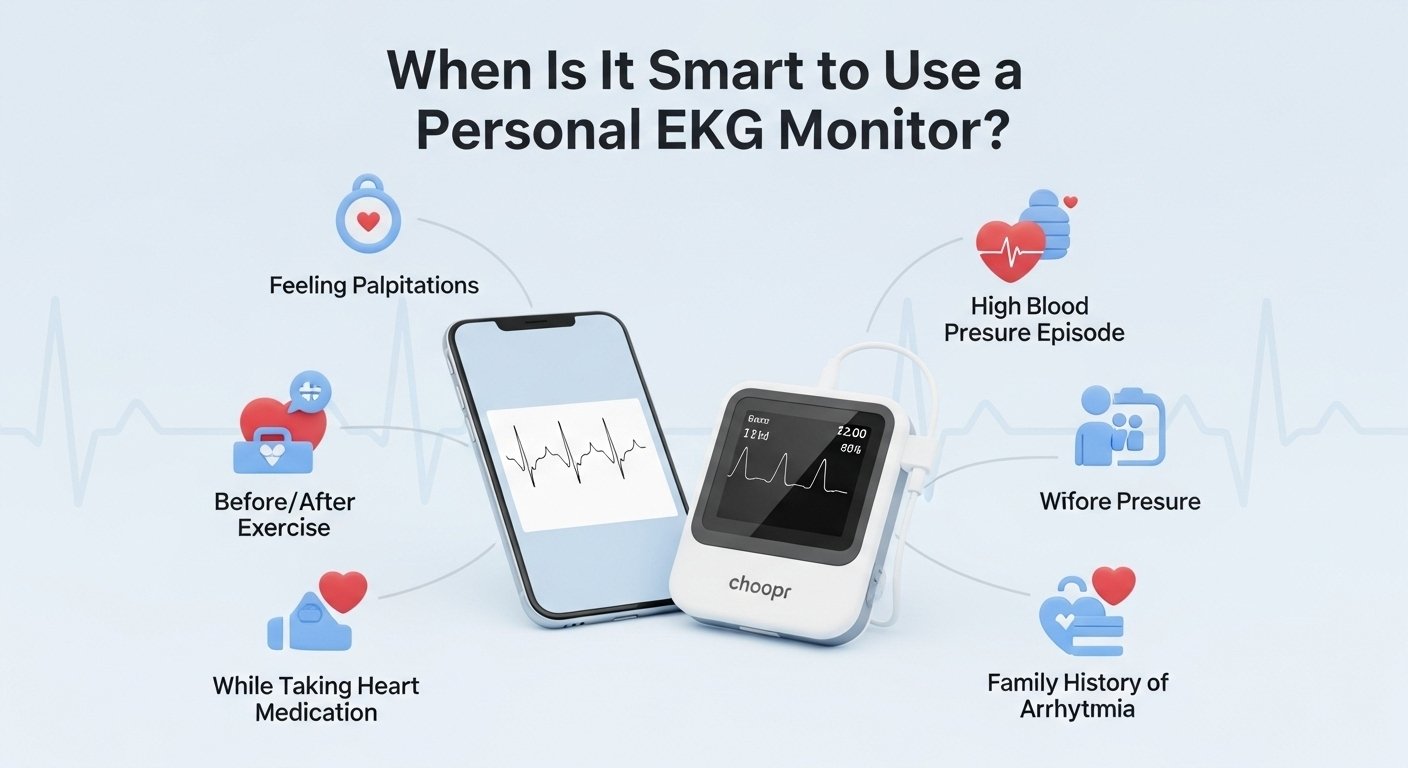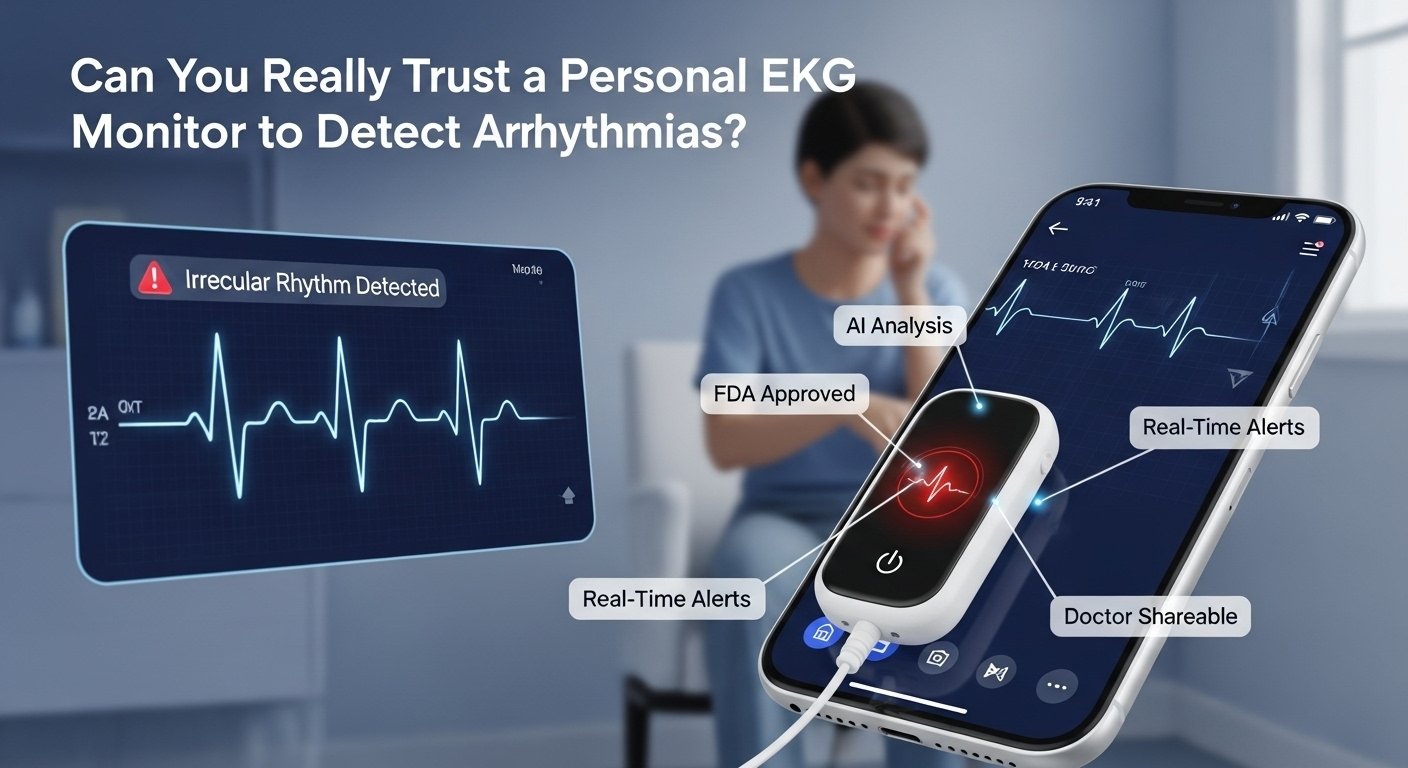Heart health is no longer confined to the doctor’s office. Today, people are taking control of their well-being with smart technology designed for everyday use. Among these innovations, the personal EKG monitor is gaining popularity as a tool to detect abnormal heart rhythms at home.
But here’s the real question: Can you actually rely on a device the size of a matchbox to detect serious heart issues like arrhythmias?
In this blog, we’ll uncover the truth behind this growing trend—and explore whether it’s smart to trust your heart to a home-based monitor.
What Are Arrhythmias and Why Should You Care?
Arrhythmias are irregular heartbeats; your heart might race, slow down, or skip beats altogether. While some are harmless, others, like atrial fibrillation (AFib), can significantly raise your risk of stroke, heart failure, or even sudden cardiac arrest.
These irregularities often show up without warning or symptoms. That’s where the personal EKG monitor steps in, offering a way to detect changes in your heart rhythm before they become serious.
Understanding the nature of arrhythmias gives context to how helpful modern heart-monitoring tools can be. Let’s explore how these monitors actually work.
How Does a Personal EKG Monitor Function?
At its core, a personal EKG device records the heart’s electrical signals and presents them as a graph just like a hospital ECG, but on a smaller scale. With simple skin sensors and a connected app, these monitors let you check your heartbeat anytime, anywhere.
Here’s what they typically do:
- Record heart rhythms in real-time
- Sync with mobile apps for easy viewing
- Send results to healthcare providers with a few taps
Because they’re portable and user-friendly, they’re ideal for spotting heart abnormalities on the go. This makes them especially helpful when you want to monitor irregular heartbeat episodes as they occur in daily life.

But how accurate are they compared to clinical tools? That’s what we’ll cover next.
Can a Personal EKG Monitor Accurately Detect Arrhythmias?
The short answer? Yes—especially for common types like AFib.
Most FDA-cleared personal EKG devices are highly sensitive and specific in detecting arrhythmias. In fact, research shows that many of these devices can detect AFib with up to 98% accuracy. They use advanced algorithms to differentiate between normal and abnormal patterns.
However, they’re not infallible:
- Movement artifacts or poor contact can affect readings
- Rare arrhythmias may go unnoticed
- Some may give false positives, leading to unnecessary worry
That said, the ability to detect AFib at home can be a game-changer, especially when episodes are unpredictable or infrequent.
Next, let’s look at when and how to use these devices for best results.
When Is It Smart to Use a Personal EKG Monitor?
Not everyone needs to track their heart daily. But certain groups stand to benefit significantly from having a personal EKG device handy:
- Those with symptoms like chest fluttering, fatigue, or lightheadedness
- People with a history of heart disease or AFib
- Individuals recovering from surgery or stroke
- Patients whose doctors suggest home rhythm tracking
Using a monitor allows you to log episodes and build a data trail. This is incredibly useful when your next clinic visit is weeks away and symptoms occur sporadically.
And if you’re trying to track symptoms linked to an EKG for arrhythmia, daily or weekly checks can be a smart preventive habit.
Now, let’s see how these stack up against professional-grade medical equipment.

Personal EKG Monitor vs. Medical-Grade ECG: What’s the Difference?
Clinical ECGs typically use a 12-lead system to capture comprehensive heart activity from multiple angles. These tests are detailed, precise, and usually done in a medical setting.
On the other hand, an EKG monitor typically uses 1 or 2 leads. That means:
- Less detail, but faster access
- Good for spotting trends or anomalies
- Excellent for supplementing, not replacing, clinical care
Think of it as the difference between a weather app and a full meteorological report. One keeps you informed daily; the other offers deep diagnostics when something’s really wrong.
But are these monitors making a real impact in everyday lives? Let’s find out.
Real Stories: The Life-Saving Potential of At-Home Monitoring
Consider Tom, a 60-year-old retiree who felt his heart race occasionally during his morning walks. With his personal EKG monitor, he captured an irregular rhythm that turned out to be AFib.
He sent the reading to his cardiologist, who confirmed the diagnosis and started treatment. Without the monitor, Tom might’ve ignored the signs until it was too late.
Stories like Tom’s are no longer rare. People all over the world are using home tech to catch early warning signs, many of which would otherwise be missed.
Still, it’s important to weigh the benefits and drawbacks. Let’s cover that next.
The Pros and Cons of Using a Personal EKG Monitor
Like all health tools, a heart monitoring device has strengths and limitations.
Pros:
- Affordable and non-invasive
- Enables proactive monitoring
- Syncs easily with smartphones and cloud systems
Cons:
- May give false alarms due to movement or skin interference
- Doesn’t detect all types of arrhythmia
- Can lead to anxiety if misused
Used responsibly, it’s an excellent tool in your heart health toolkit. So, who should really consider owning one? Let’s break it down.
Who Can Benefit Most From Personal EKG Monitoring?
These devices aren’t just for people with existing conditions. A personal heart tracking device is a smart choice for:
- Older adults over 50
- Patients managing hypertension or diabetes
- Athletes monitoring heart performance
- Anyone looking to ECG for heart problems as a precaution
They’re also ideal for caregivers who want to track a loved one’s heart activity discreetly and regularly.
Now that we know who benefits most, let’s settle the final verdict—can you really trust it?
So, Can You Trust It? Here’s the Truth
Yes, you can trust a personal EKG monitor if you use it correctly and understand its scope.
It’s not a substitute for your doctor’s diagnosis, but it can absolutely:
- Catch warning signs early
- Document important heart activity
- Encourage timely medical intervention
Think of it like a smoke detector: it doesn’t put out fires, but it alerts you when something’s not right. That kind of insight can be life-changing, even life-saving.
And now that you know its potential, what will you do next?
Today’s healthcare isn’t just about treatment; it’s about prevention. And a personal EKG monitor gives you a powerful tool to detect risks before they escalate. It bridges the gap between doctor visits and offers a window into your heart’s daily rhythm.
When used with awareness and medical guidance, it’s not just a gadget—it’s a guardian.
Your Heart Sends Signals Every Day—Are You Listening? Explore the possibilities of using a personal EKG device as part of your wellness journey. Don’t wait for a hospital visit to take your heart seriously. Start today, and stay one step ahead of silent symptoms.


